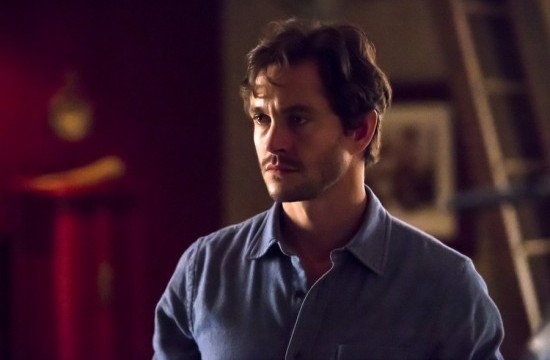After dropping us in the world of Dr. Lecter for an hour last week, Hannibal has returned, this time entering the headspace of Will Graham. “Primavera” was practically a bottle episode for the show. Plot-wise, relatively little was revealed. Even the fates of Jack and Alana are still up in the air from last season’s finale. But so much of this episode was entirely necessary and vital to the series.
The conversations — about God, about suffering, about elegance, about Hannibal, about each other — that Will had with Abigail Hobbs’ “ghost” were more than just character-building. They were Bryan Fuller and company using the characters as vessels by which to explore the veins of essential blood pumping through the show.
Earlier I used the term “the headspace of Will Graham” to describe where the show brought us this episode. But “Primavera” provided the audience with an even more accurate metaphor — the heart. As Hannibal prepared one of his most gruesome designs for Will in the form of a massive “heart,” the creatives behind Hannibal are presenting us with the heart of the show. This episode burrowed deep into the themes of the show, past the superficial flesh and the hostile muscles into the great bleeding heart. Does God exist? Does elegance negate suffering? These are big questions for any work of art to be asking, let alone a network TV show, but by staging these questions with such majesty and artfulness and, yes, elegance, the creators of Hannibal (including Fuller and episode director Vincenzo Natali) are able to provide themselves with a canvas large enough to paint these questions on.
“But enough overcooked metaphors,” you may think to yourself. “What about the visuals?”
Che magnifico.
Too often, television series — even the best of them — have been afraid to engage with visuals in a non-representative manner. We prize realism too often, and because of that, we have discouraged the kind of images we saw tonight: Will Graham drowning in a pool of imaginary blood, before transforming into a teacup, shattering and re-emerging intact.
Che magnifico.
Moments like this, or Will watching the fleshy heart begin thumping before transforming into a bizarre deer-man corpse hybrid, remind me of how thinly the line is drawn on this show, that slender thread dividing the real from the unreal. This is a show that takes the bizarreness of its constructed “reality” and the physicality of its “nightmare” sequences and molds them together to the point where every watcher should be asking where the “real” begins and the “unreal” ends, and whether that distinction makes any difference whatsoever.
But what “Primavera” was able to do was to show us that there are, in fact, limits to the unreality. Abigail Hobbs, although Will can allow himself to imagine her, is gone.
And for all the similarities between the two, Will’s “creation” of Abigail demonstrates how he is crucially different from Hannibal. While Hannibal uses his profound imagination and creativity to cause suffering for others, Will uses his imagination to provide others with some kind of “peace,” even if it’s a peace that only exists in one of the discussed alternate world. Will creates a world where Abigail gets to live and walk around churches in Palermo and have hope. Even while he knows she does not exist, which must cause him great pain, he will provide her the “stream” which he talks about so much. Will is a God creating a paradise those who are worthy in his sights. But what is he planning for Hannibal? Is it a hell?
By telling Lecter that he forgives him, Will is committing a great act of blasphemy in the eyes of the cannibal. Because to forgive something is to position yourself equal to or above the thing being forgiven. No one imagines a louse or a flatworm forgiving even the most primitive of man. And although Will argues that Lecter doesn’t want to play God but to instead defy him, the truth is that to defy God is to set oneself up as a kind of anti-God — the peer of the divine, equally gifted in all unearthly ways. The destroyer to the creator, and the creator to the destroyer. And for Will to forgive Hannibal suggests that Will is a god as well.
Or is Hannibal, all elegant designs aside, nothing more than a man?


